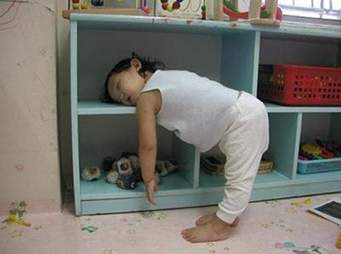514.223.5327
MAKE AN APPOINTMENTGet a Better Night’s Sleep
Sleep is essential for health and well-being. But millions of people do not get enough of it, which results in problems such as chronic fatigue, anxiety, depression, weight gain, reduced immunity, poor decision-making, interference with learning potential and accidents. According to the National Sleep Foundation more than 60 percent of adults experience a sleep problem several times per week.
There are many causes of poor sleep. Drinking alcohol or beverages containing caffeine in the afternoon or evening, exercising close to bedtime, following an irregular morning and nighttime schedule and working or doing other mentally intensive activities right before or after getting into bed are common ones. Temperature, noise, light, shift work, traveling across time zones and even the sleep habits of your partner can also disrupt sleep – all of which can and often do upset circadian rhythms.
But stress is the number one culprit. When we experience pressures from work or school, when we are experiencing conflict in our interpersonal relationships or struggling with our health – it is common for sleep to become disrupted. However insomnia can persist long after a stressful situation has passed.
Recently cognitive behavioral therapy has been shown to be very effective in getting people to fall asleep and conquer insomnia. Almost one third of people who undergo this treatment recover from their insomnia and most reduce their symptoms by 50 percent and sleep an extra 45-60 minutes a night.
According to leading sleep researchers there are relatively simple techniques to combat common sleep problems. Keep a regular sleep/wake schedule. Commit to a regular bed time and go to bed at the same time each night. People who sleep eight hours a night with varied bedtimes will not feel as rested as those who use the same bedtime. Here are some other ideas to try:
- Attempt to go to bed earlier every night for a certain period to ensure that you’re getting enough sleep
- Try and wake up without an alarm clock
- If you nap take a power nap of no longer than 20 minutes during the day.
- Do not ingest caffeine four to six hours before bed and minimize daytime use
- Do not smoke especially near bedtime or if you wake in the night
- Avoid alcohol and heavy meals before sleep
- Get regular exercise – but don’t exercise too close to bedtime
- Minimize noise, light and excessive hot and cold temperatures where you sleep
- This being said find ways to warm your body temperature before bedtime. You might try a cup of caffeine free tea, a warm shower or bath or your favorite pyjamas and bathrobe. Forego the tea if it prompts night waking for the bathroom
- Dim the lights before bedtime and avoid surfing the Web or watching television immediately before bed
- Write down troubling thoughts so that you are less likely to dwell on them through the night
- Incorporate relaxation techniques such as breathing exercises or progressive muscle relaxation. When the body relaxes, the mind tends to follow
We encourage you to give these ideas a try. If you need additional support contact us at (514) 223 5327. Our clinicians are trained in Cognitive Behavioral strategies.
Written by: Shawna Atkins, Ph.D., OPQ.

